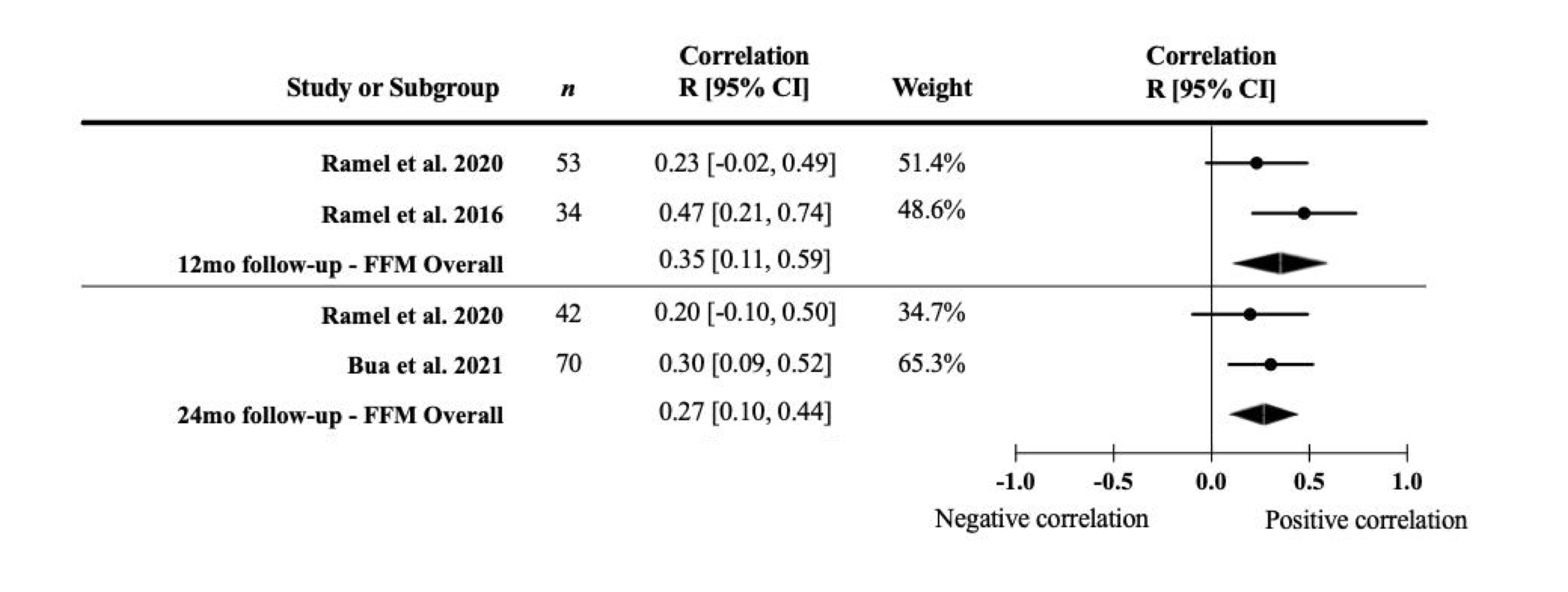Neonatal Fetal Nutrition & Metabolism 3
Session: Neonatal Fetal Nutrition & Metabolism 3
625 - Postnatal Body Composition and Long-Term Neurodevelopment in Preterm Infants: A Systematic Review and Meta-Analysis
Monday, April 28, 2025
7:00am - 9:15am HST
Publication Number: 625.6216
Girish Deshpande, University of Sydney and Nepean Hospital sydney, sydney, New South Wales, Australia; Jeremiah E. Cho, University of Sydney, Parramatta, New South Wales, Australia
- GD
Girish Deshpande, PhD FRACP (he/him/his)
Senior Neonatologist
University of Sydney and Nepean Hospital sydney
Sydney, New South Wales, Australia
Presenting Author(s)
Background: Extremely preterm infants are at risk of poor growth and high risk of lower cognitive scores. Interruption in nutrition during 3rd trimester and poor nutrition in early life may reflect in body composition. Postnatal body composition particularly fat free mass may predict neurodevelopmental trajectory. Results of recent observational studies suggest that early body composition particularly lower fat free mass at term gestation in preterm infants may be associated with long-term neurodevelopment.
Objective: This systematic review and meta-analysis aimed to address whether neurodevelopmental impairment at 12-48 months in preterm infants is associated with altered in-hospital postnatal body composition near term-equivalent age.
Design/Methods: Eligibility criteria for inclusion of studies were preterm infants, body composition measurement at 36-40 weeks gestational age, reporting neurodevelopmental assessment scores at 12 months corrected age and beyond. Following PRISMA guidelines, three independent investigators last searched Embase and CENTRAL on September 17, 2024. We conducted a random effects meta-analysis of correlation coefficients associating parameters of body composition including fat-free mass (FFM), fat mass (FM) and body fat percentage (BF%) measured at near-term equivalent age with Bayley Scales of Infant Development (BSID-III) scores tested at follow-up time points utilised in the included studies.
Results: Of 997 publications identified by our literature search, six studies were shortlisted out of 80 retrieved. Three of these six observational studies (n=174) were eligible for inclusion. Mean BSID-III scores at 12- and 24-months corrected age were positively correlated with postnatal FFM at 12 months (2 studies, n = 87, R = 0.35, 95% CI 0.11 to 0.59, p = 0.004) and 24 months (2 studies, n = 112, R = 0.27, 95% CI 0.10 to 0.44, p = 0.003), but not FM (1 study) or BF% (2 studies).
Conclusion(s): The results of our systematic review supports postnatal FFM measurement may predict long-term neurodevelopment in preterm infants and supports the use of body composition assessment prior to discharge as a potential predictor of long-term neurodevelopment in preterm infants. Further research should include nutritional interventions targeting optimization of body composition measured early in preterm infants.
Forest plot fat free mass
 Forest plot fat free mass
Forest plot fat free mass
